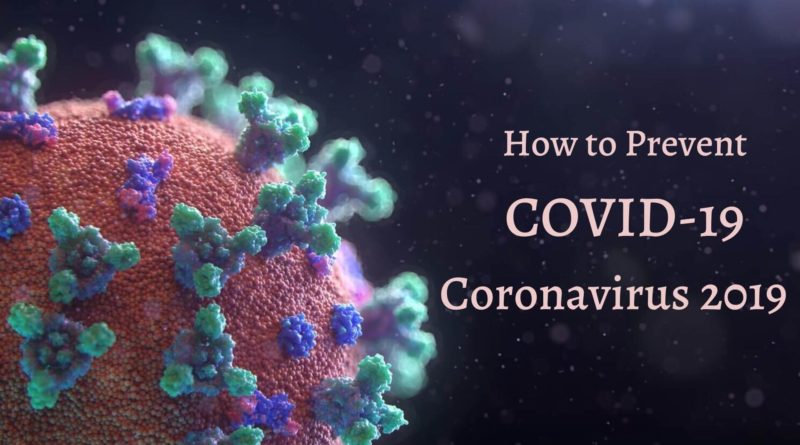The world is fighting desperately against the new health emergency, a new virus called coronavirus or COVID-19. The outbreak of this disease is a new strain and is discovered in 2019 which was not seen in humans any time before that. It is obvious that with the outbreak of such deadly viruses you may get inappropriate information that can result in chaos and fear. It is important to identify misinformation and stay away from it and to assist you in this emergency, here is Live Enhanced with a complete guide on coronavirus and how to prevent it.
What is Coronavirus (COVID-19)?
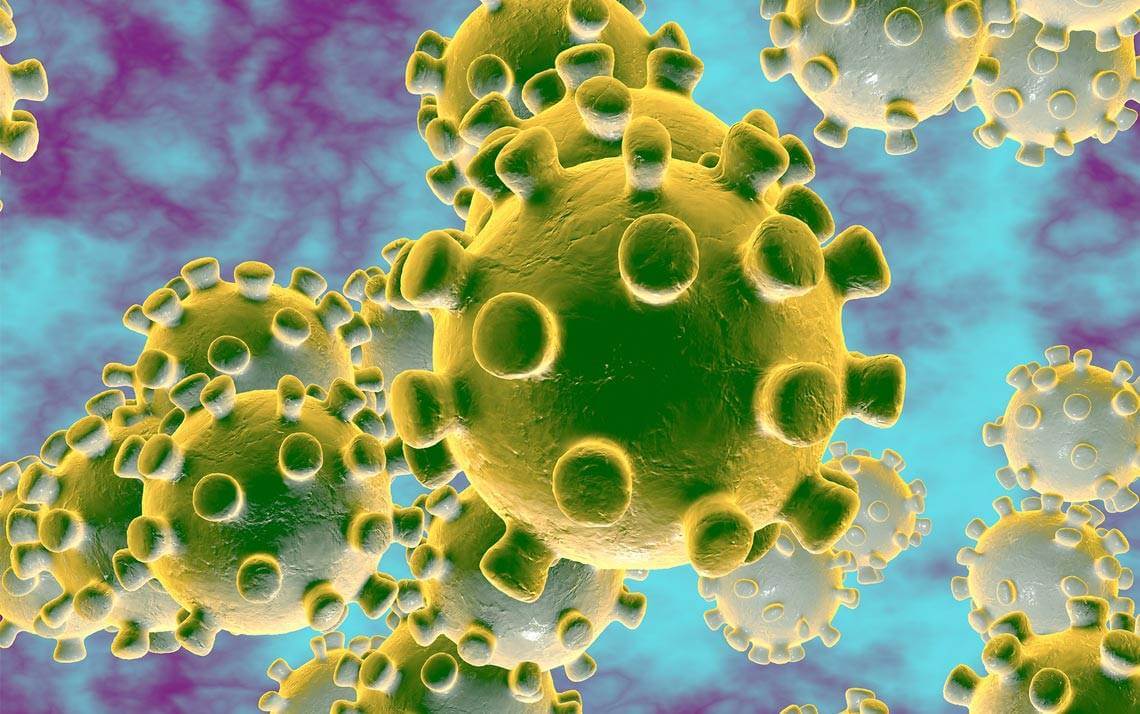 source: today.duke.edu
source: today.duke.edu
Coronaviruses are a huge family of viruses. These viruses cause a respiratory-related illness that may be the common cold and fever or in severe cases, it can be severe diseases such as Severe Acute Respiratory Syndrome (SARS) and Middle East Respiratory Syndrome (MERS). Coronavirus is basically found in the animals some of which can be easily transmitted to humans while some viruses have not affected humans and are circulating in animals only.
Coronavirus got its name from the Latin word “corona” which means crown as the cross-sectional model of the virus resembled a wreath or crown-like structure. The appearance of virions by electron microscopy showed this characteristic and thus adopted its name as coronavirus.
History of Coronavirus

source: unsplash.com
Initially, coronaviruses were first detected in the 1960s and were infecting the chickens. Only two human cases were found of this virus which infected two persons with the common cold. Since then, there were no cases to panic from these viruses. In 2003, SARS-CoV and in 2004 HCoV NL63 were identified as other members of this family. The SARS-CoV was transmitted from cats to humans while the MERS-CoV found in 2012 was transmitted from dromedary camels to humans.
The coronavirus pandemic of 2019-20 was first found in humans on 1st December 2019 in a 55-year-old man in Wuhan, Hubei, China. The viruses transmitted among hundreds of people during December 2019 when the virus caused numerous cases that looked like unknown pneumonia which was later diagnosed as the CoVID-19. The virus shows 96% similarity as the bat coronavirus and it is also suspected to have originated from the bat as well. The viruses spread vigorously among more than 70 countries and considering the increasing number of cases, WHO declared it to be a global pandemic.
Symptoms of Coronavirus
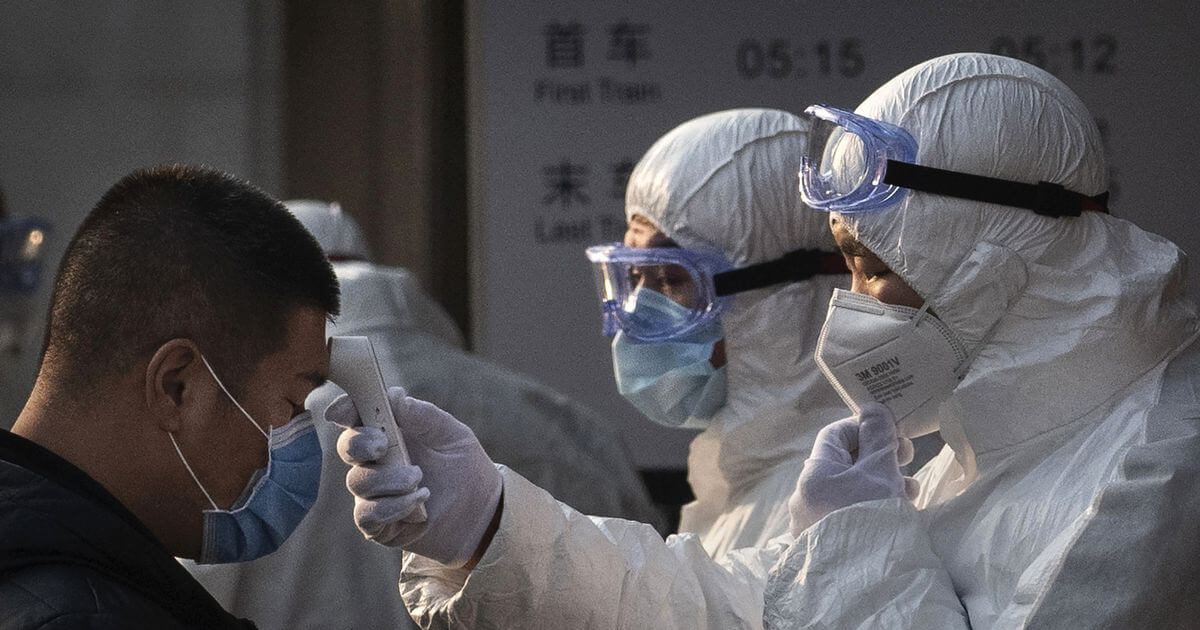 source: mirror.co.uk
source: mirror.co.uk
After understanding the outbreak of the deadly disease it is important to know the symptoms of the COVID-19. Coronaviruses vary in risk factors depending on their type. Some viruses are known to kill almost 30% of those who are affected while other types of coronaviruses are significantly harmless.
The initial symptoms include fever, cough, common cold, shortness of breath. The severe cases show more serious symptoms such as pneumonia and severe breathing difficulties. Symptoms of common cold, flu, and influenza are common in COVID-19. In more severe cases, symptoms include pneumonia, SARS, Kidney failure and death. Also, one need not panic as all kinds of flu are not coronavirus and testing is necessary to confirm the infection of CoVID-19.
Types of Coronavirus
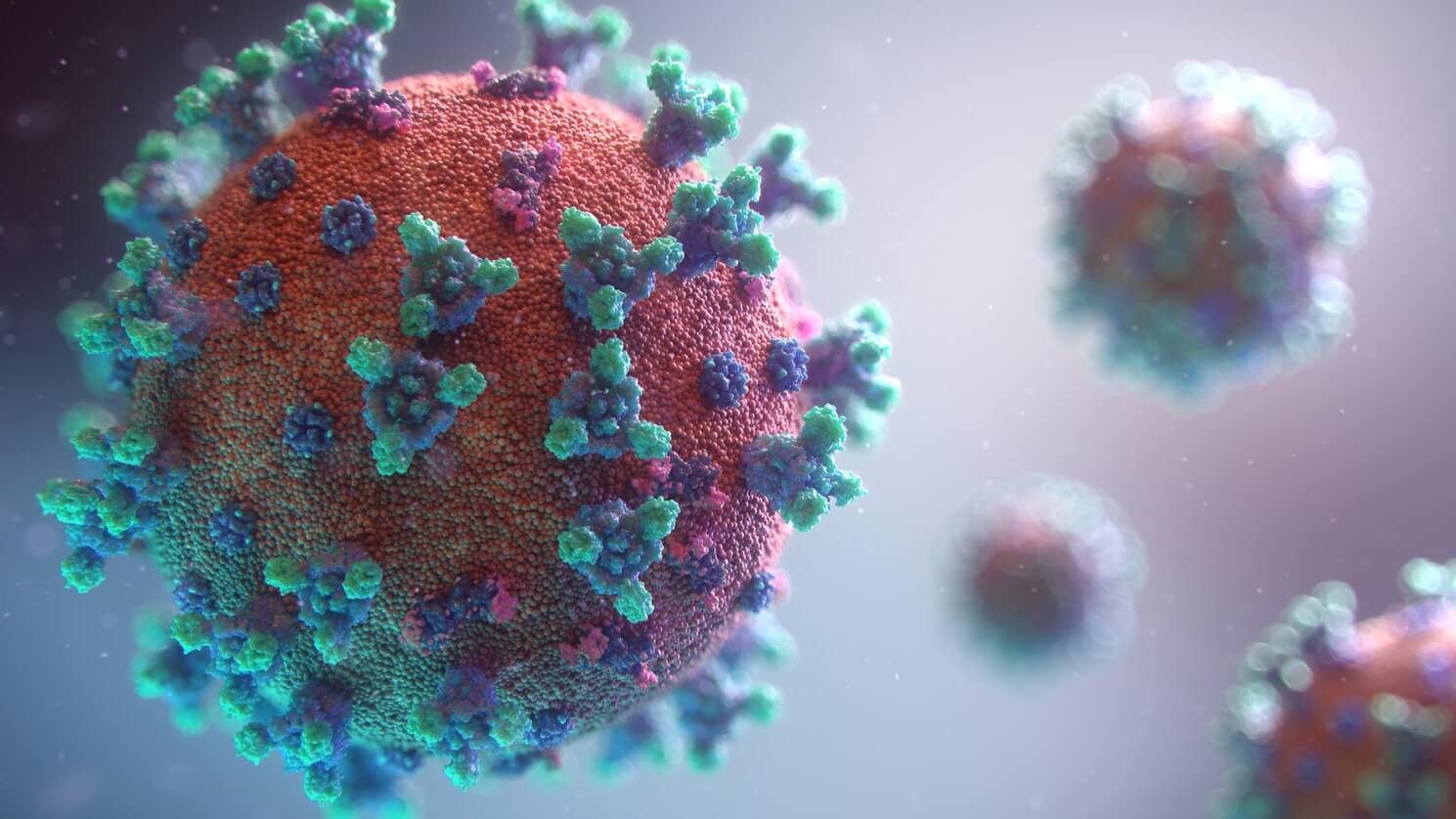 source: unsplash.com
source: unsplash.com
There are mainly seven strains of coronavirus known so far that are proved to be dangerous. This includes:
- Human Coronavirus 229E (HCoV-229E)
- Severe Acute Respiratory Syndrome Coronavirus (SARS-CoV)
- Human Coronavirus OC43 (HCoV-OC43)
- Human Coronavirus HKU1
- Human Coronavirus NL63
- Severe Acute Respiratory Syndrome 2 (SARS-CoV-2) or Novel Coronavirus 2019
- Middle East Respiratory Syndrome (MERS-CoV)
Out of these, the viruses that commonly infect humans are HCoV-229E, HCoV-NL63, HCoV-OC43, and HCoV-HKU1. The current outbreak of viruses that affected the whole world is the SARS-CoV-2 which is also called COVID-19 and was first reported in China in December 2019.
How does COVID-19 spread?
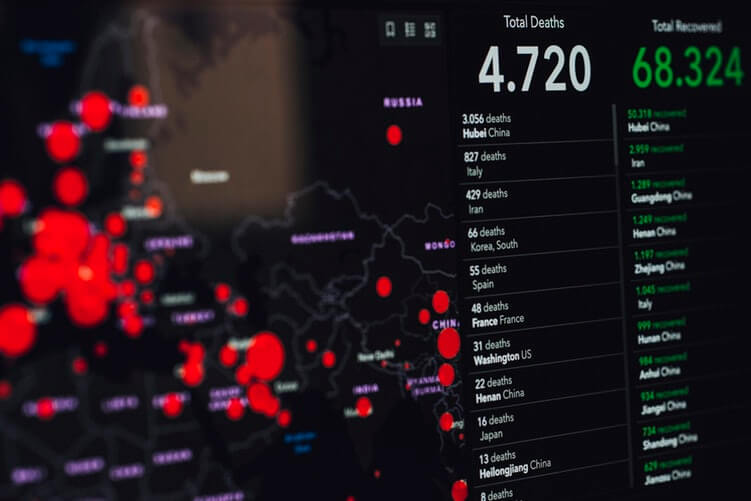 source: unshplash.com
source: unshplash.com
COVID-19 does not spread from one person to another through the atmosphere. This infection spreads via droplets produced from the respiratory system of the infected person to another person. This includes coughing and sneezing of the infected person. The person coming into the close contact of an infected person is at a higher risk of getting an infection.
The infection can also spread from touching objects contaminated from viruses and then touching eyes, nose or mouth. The COVID-19 viruses can remain on the surface for several hours. Time for exposure to the symptoms ranges from 2 to 14 days from getting the infection.
Who is at a higher risk of infection?

source: unsplash.com
As the virus is new and no proper scientific research is done to date it is difficult to stereotype the group of persons at a higher risk. But the cases have shown that people with chronic medical conditions such as blood pressure, diabetes, cancer, etc. and old people are at major risk. The research is going on about it but there are cases of younger people getting infected through this.
How do you protect yourself from COVID-19?
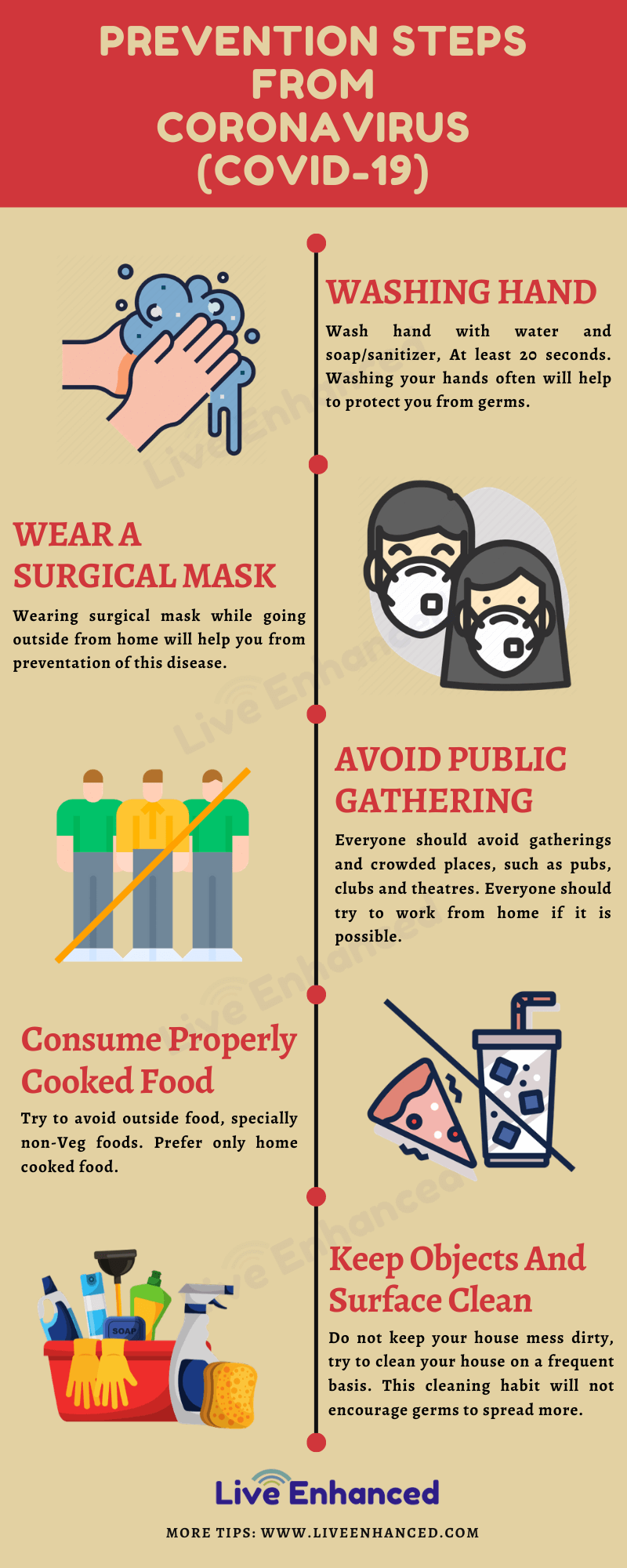
The most important step to prevent this deadly disease is to stop infection as there are no proven medicines available to cure the virus effect. Thus instead of curing the disease, it is important to prevent getting an infection by following some simple hygienic habits.
- The best way to avoid this virus is to avoid being exposed to it. The virus is spread from person to person who is in close contact of about 6 feet so it is important to stay away from the infected person. To protect one from COVID-19, do this:
- Clean your hands frequently with soap and water or if it is not available, clean with alcohol-based sanitizer having 60% of alcohol content.
- If you have been to a public place, avoid touching your hands, nose, and eyes with unwashed hands.
- Wash your hands thoroughly for at least 20 seconds after returning from a public place or after coughing or sneezing.
- Avoid close contact with the people who are sick or have symptoms of flu.
- If you are sick, isolate yourself and stay at home.
- Cover your cough or sneeze with the tissue and immediately destroy the tissue in the trash and wash your hands.
- When stepping out to a public place, always wear the mask and try to avoid the crowded place.
- COVID-19 viruses can stay on the surface for hours. Try not to touch anything at the public place or unknown surface without sanitizing it.
- Also, clean and disinfect the frequently touched place around you, for instance, doorknob, handles, light switches, keyboards, etc.
- If you have fever, headache, cough or breathing difficulty, seek medical advice immediately.
- Keep yourself informed and follow the guidelines given by the authorities and advice of the healthcare provider.
Myths about COVID-19
 source: unshplash.com
source: unshplash.com
It is natural that with the outbreak of this deadly virus, there are various myths and rumors spread by different sources. For this, WHO has published some myth busters to protect people from misinformation. Some truth about COVID-19:
- COVID-19 viruses can be transmitted in ALL AREAS irrespective of hot, humid or cold climate.
- Snow or cold weather CANNOT kill COVID-19 viruses.
- Taking a hot bath DOES NOT prevent the virus from entering the body.
- The COVID-19 viruses CANNOT be transmitted through a mosquito bite.
- Hand dryers ALONE are NOT CAPABLE of killing the COVID-19 viruses. You have to wash your hands with an alcohol-based sanitizer.
- The ultraviolet disinfection lamp CANNOT kill the new coronavirus.
- Spraying the alcohol or chlorine all over the body CANNOT kill the COVID-19 virus.
- People of ALL ages can be affected by these viruses.
- Antibiotics, garlic, saline, vaccines of pneumonia or any specific medicine CANNOT prevent the COVID-19 viruses.
Bottom Line
If you are in the epidemic zone or not, no need to panic. We can stop this virus outburst by taking preventive measures and following the advice of the healthcare authorities. Remember, do not trust any rumors and in case of any queries contact directly the authorities or trusted sources and get assistance. We can stop this by uniting and taking hygienic measures. Visit our page Live Enhanced for more information on Health & Care.

